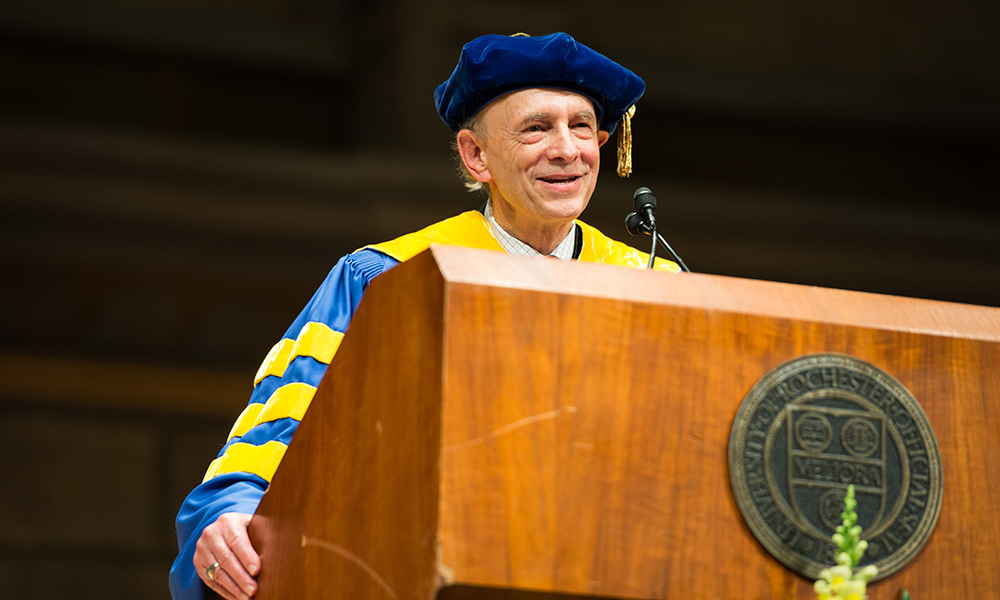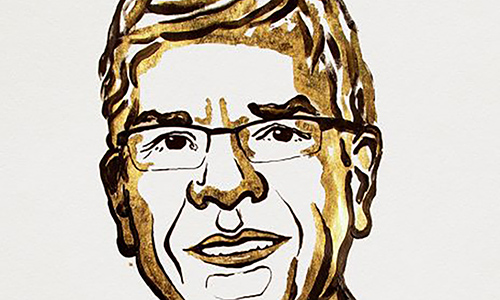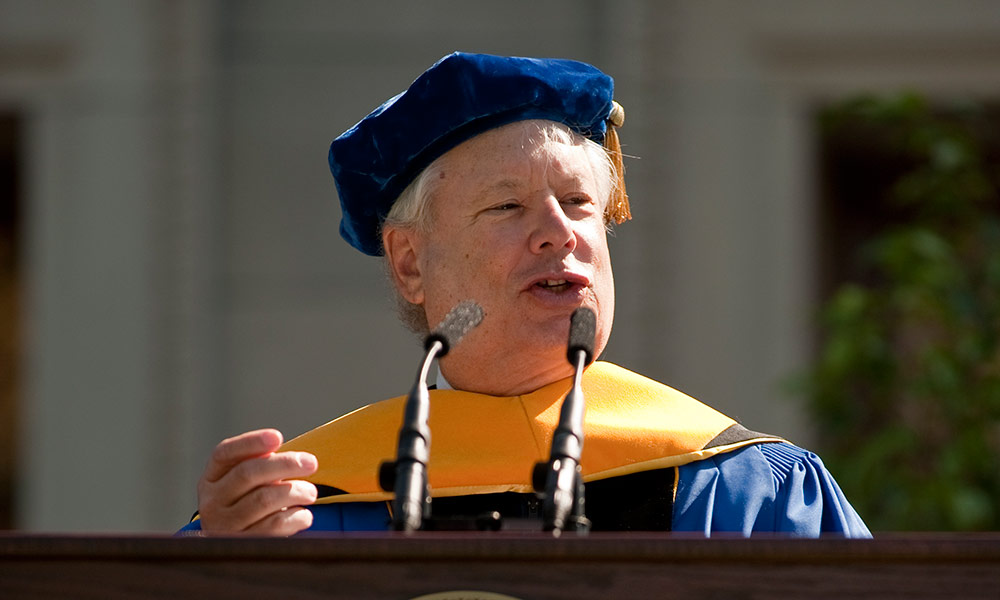
Srihari Govindan, a professor of economics at the University of Rochester, had been waiting many years for his colleague and collaborator Robert Wilson to be awarded a Nobel Prize. That day finally came this past Monday when Wilson and fellow Stanford University professor Paul Milgrom won the prize in economics for their work in auction theory.
Auctions permeate economic life, whether it’s homebuyers bidding on a house in a hot real estate market, or the Federal Communications Commission auctioning to mobile phone service providers licenses to transmit signals over the electromagnetic spectrum.
As explained in a press release by the Royal Swedish Academy of Sciences, Wilson “developed a theory for auctions of objects with a common value—a value which is uncertain beforehand but, in the end, is the same for everyone.” That would be the case, for example, when bidding for radio frequencies or mineral drilling rights. Wilson explained that parties sometimes place bids below the perceived common value in order to avoid what’s called the winner’s curse—placing a bid that ultimately winds up being in excess of the common value.
“By understanding these principles, it’s possible to design new and better auction formats,” says Govindan, who is currently working with Wilson on understanding auctions involving many participants.
Govindan’s collaborations with Wilson go back 25 years and typically focus on other areas of game theory, specifically refinements to the Nash Equilibrium, named for mathematician John Nash, the subject of the book A Beautiful Mind and the movie of the same title.
A foundational concept in game theory, the Nash Equilibrium stipulates that every competitive game has an equilibrium reached as competitors stake out their positions based on what they think the other members of the group will do. Acting in the belief that they know everyone else’s strategies, there’s no incentive for anyone to do anything differently.
“But it’s been known for a while that not all Nash Equilibria constitute sensible predictions,” says Govindan. “A rational change in behavior by one participant can actually change the behavior of others.”
Govindan and Wilson are currently working on principles—or axioms—of rationality for establishing the equilibria in specific cases.
“We’ve been able to come up with axioms for games or situations dealing with two participants,” says Govindan. “And we are now extending the process to multiple participants.”
Now that Wilson was named a recipient of a Nobel Prize, it may take a while for the two of them to focus on the next phase of their research. But Govindan doesn’t mind.
“I was afraid there would be more disappointment this year, but Bob’s wife, Mary, called me at 6 in the morning last Monday to give me the good news,” says Govindan. “I couldn’t be happier.”
Read more
 Rochester’s Nobel laureates
Rochester’s Nobel laureatesWith the announcement of his receipt of the 2020 Nobel Prize in Medicine, Harvey Alter ’56, ’60M (MD) is now the 13th Nobel laureate with ties to the University.

Former economics professor Paul Romer receives Nobel Prize
The former assistant professor of economics at the University of Rochester is currently a professor at New York University, and was recognized by the Nobel Committee for his work on the economics of technological change.

Rochester graduate Richard Thaler receives Nobel Prize
Richard Thaler ’74 (PhD), who earned his graduate degrees at the University of Rochester, has received the 2017 Nobel Prize in Economic Sciences for his contributions to behavioral economics.




